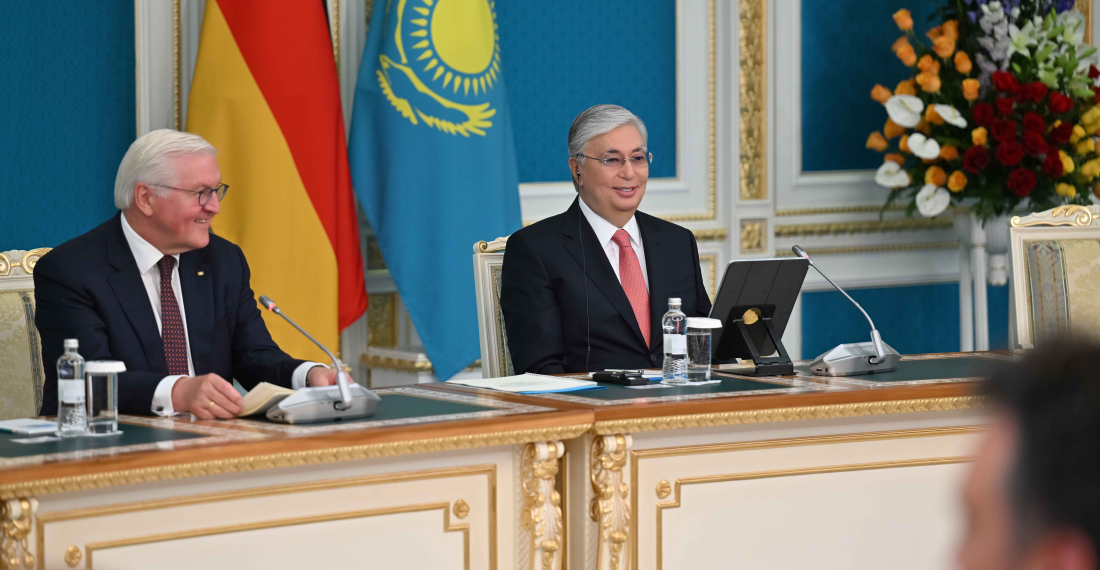The German President Frank-Walter Steinmeier has held talks with the Kazakh President Kassym-Jomart Tokayev during an official visit to Kazakhstan on 20 June.
President Tokayev said that Frank-Walter Steinmeier's state visit "opens up good opportunities for further strengthening of comprehensive cooperation between Kazakhstan and Germany", according to an official read-out from the Presidential Administration.
"We have been anticipating your visit, which is regarded as a very important one in terms of giving additional boost to the development of cooperation between Kazakhstan and Germany. Germany is considered here in Kazakhstan as a key partner in Europe. And we will be doing our utmost in order to enhance our cooperation in a variety of domains," said President Tokayev.
On his part, President Steinmeier said that Germany is "not only looking back to the past 30 years of diplomatic relations, we are looking to the presence of our especially but not only economic growing relations, you are mentioning that many German companies are heavily invested in the meanwhile, here in Kazakhstan, and, you know, beyond economic relations."
"Kazakhstan is a key partner for the Federal Republic in the Central Asian region, politically, culturally and economically," said President Steinmeier.
More than 80% of German trade with the Central Asian region happens with Kazakhstan, and mutual trade reached $10 billion last year. Meanwhile, President Tokayev also highlighted that 80% of trade taking place along the so-called "Middle Corridor" between China and Europe, via Central Asia, takes place in Kazakhstan.
The main topics of discussion during the Presidents' meeting were strengthening trade and economic cooperation, energy, manufacturing, mechanical engineering, transport and logistics, renewable energy sources, critical raw materials and agriculture.







